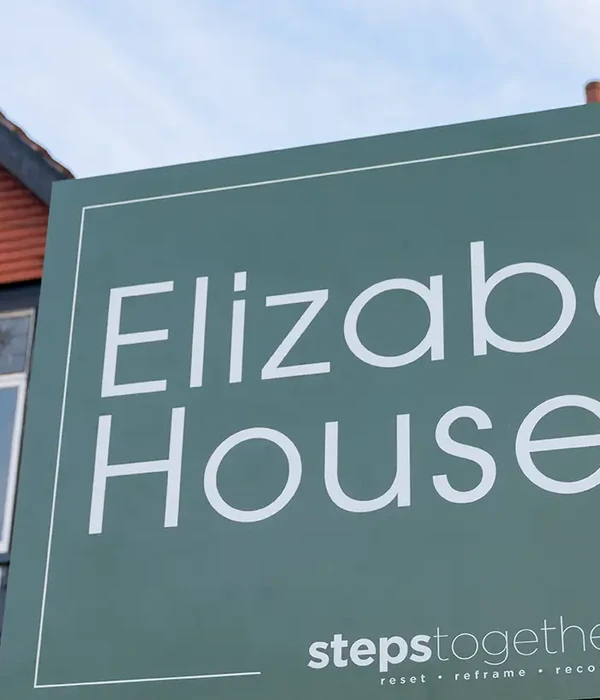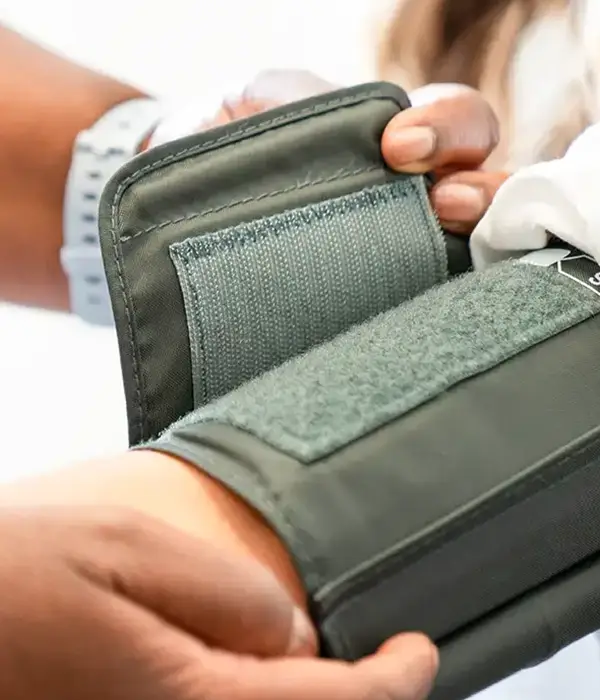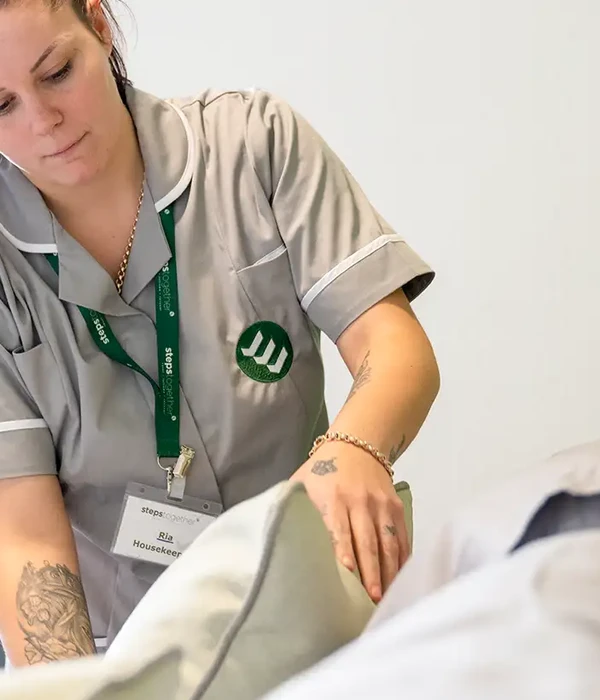Bath Salts Addiction Treatment
Effective bath salts addiction treatment involves a combination of medical detox, therapy, and ongoing support to help you stop using and start recovering. Bath salts, or synthetic cathinones, are powerful stimulants known for serious health risks and high potential for dependence.
If you or someone you care about has an addiction to bath salts, professional help is crucial. Modern treatments often include supervised detox, counselling, and aftercare programmes designed to build lasting recovery from drug addiction. Recovering from synthetic drug abuse often requires an array of different treatment options.

Take the First Step Towards Recovery
Steps Together offers personalised support and proven treatments, providing the care, guidance and encouragement you need to move forward with confidence and build a healthier future.

Understanding Bath Salts Addiction
Bath salts are a group of man-made stimulant drugs that can cause serious health risks when used. They are chemically similar to compounds found in the khat plant, a natural stimulant with traditional and medical use in some cultures. However, synthetic cathinones are far more potent and unpredictable than what’s found in nature, and they’re highly addictive.
These substances can come in various forms, often disguised under different street names, making them particularly dangerous and prone to misuse. Bath salts affect brain chemistry and can lead to harmful psychological and physical effects with repeated or high-dose use.
What Are Bath Salts and Synthetic Cathinones?
Bath salts are not the kind you find in a bath store. They are a type of designer drug, often marketed as ‘plant food’ or ‘cleaners’ to hide their real use. The main chemicals in bath salts are synthetic cathinones.
These substances are made to mimic the effects of other stimulant drugs like cocaine, amphetamines, and MDMA. They are often white or brown powders and can be swallowed, snorted, smoked, or injected.


How Bath Salts Affect the Brain
Bath salts work by strongly affecting the way your brain’s chemical messengers send signals. The most common result is a huge release of dopamine and norepinephrine. This is why users may feel a strong sense of euphoria, high energy, and increased alertness.
However, this chemical surge can also lead to dangerous side effects like paranoia, hallucinations, violent behaviour, and agitation. With repeated use, your brain’s natural chemical balance is disturbed, raising the risk of addiction and mental health problems.
Bath Salts Addiction Treatment Options
Bath salts addiction treatment often involves several stages and types of care. The most effective strategies combine medical support for withdrawal, structured living environments, flexible outpatient services, and proven psychological therapies.
Detoxification and Managing Withdrawal
Detoxification helps your body clear the synthetic cathinones found in bath salts, and it’s often the first step in treating drug and alcohol addiction. Withdrawal symptoms may include anxiety, paranoia, agitation, and fatigue. Medical supervision is important to manage these symptoms safely and reduce the chances of complications.
In a detox centre, you may be monitored 24 hours a day. Staff can also provide emotional support during withdrawal, which is often intense. Detox does not treat the addiction itself, but it prepares you for further treatment.
Outpatient Treatment Approaches
Outpatient bath salts addiction treatment offers flexibility if you need to balance rehab with family or work commitments. You attend scheduled sessions at a clinic but live at home. Outpatient programmes can include individual or group counselling, drug testing, and educational workshops.
Levels of intensity range from a few hours per week to several days each week. This approach to substance abuse treatment works well if your addiction is moderate and you have a safe and stable place to live. Outpatient care may also follow inpatient rehab as a step-down in support.
Inpatient Treatment Programmes
Inpatient treatment for bath salts addiction offers a highly structured environment where you live at a treatment centre. This approach removes you from triggers and unhealthy environments so you can focus on recovery. Inpatient options are best if you have a severe addiction, co-occurring mental health disorders, or lack stable housing.
Day-to-day schedules in a rehab centre include group therapy, individual counselling, and medical care. Support staff are on site anytime you need help. Inpatient stays can last several weeks to a few months, depending on your needs and progress. Some facilities also provide aftercare planning to support you after discharge.
Behavioural Therapies and Counselling
Behavioural therapies are key in treating bath salts addiction. Cognitive Behavioural Therapy (CBT) helps you identify triggers, change unsafe behaviours, and develop coping skills. Other evidence-based options like contingency management and motivational interviewing can boost your engagement and motivation.
Group counselling provides support and helps reduce feelings of isolation. Family therapy can address harm done by addiction at home and improve relationships. Behavioural therapies often form the core of both inpatient and outpatient programmes and are led by trained specialists.
Other drug addictions we treat at Steps Together

Causes and Risk Factors for Bath Salts Addiction
Your risk for developing bath salts addiction may be higher if you have a history of substance abuse. People who already struggle with other drugs or alcohol are more likely to try or misuse bath salts. Starting substance use at a young age also increases your risk.
Peer pressure and wanting to fit in can lead to experimenting with bath salts, especially among teenagers or young adults. Easy access to bath salts in some areas raises the chances of use. Some people may try bath salts because they are curious about the effects or because they are looking for a stronger high when other drugs no longer feel the same.
Mental Health Issues
Mental health problems can increase your chance of bath salt addiction. Conditions such as depression, anxiety, bipolar disorder, or schizophrenia may make you more likely to use bath salts as a way to cope. People who feel hopeless or very stressed might turn to drugs to feel relief or escape from their thoughts.
People with trauma or a history of abuse are at greater risk for both mental illness and bath salts addiction. Seeking help for mental health problems can lower your risk of turning to drug abuse. Early support and treatment give you a better chance of avoiding or recovering from substance use disorder.

Symptoms of Bath Salts Addiction
When you use bath salts, you may notice rapid and frequent mood swings. You might feel unusually energetic, anxious, or angry. Paranoia and hallucinations are common. Some people become violent or aggressive, even towards friends and family.
Stopping bath salts after regular use can be difficult. You might feel extreme fatigue or sleep for long hours. Depression and severe mood swings often occur. Strong drug cravings are also very common. You may experience intense anxiety, irritability, or even paranoia.
An overdose of bath salts can happen quickly, with very serious results. You might experience chest pain, high body temperature, or rapid heartbeat. There may be seizures, confusion, or violent outbursts. Paranoia, hallucinations, and extreme agitation are also common overdose symptoms, making some people a danger to themselves.
Recovery Support for Bath Salts Addiction
Support for bath salt addiction is crucial after initial treatment. Staying connected to others and working to prevent relapse can help you make lasting changes in your life. Recovering from the use of bath salts may include:
Family Support
Family support can play a vital role in the recovery process from bath salts addiction. Loved ones can offer emotional stability, encouragement, and accountability throughout treatment and beyond. Educating the family about the nature of addiction helps reduce stigma and build empathy.
Open communication, healthy boundaries, and involvement in therapy sessions can support long-term recovery. When a family works together to understand the challenges of addiction, it creates a more stable and supportive environment to foster recovery.
Strategies for Relapse Prevention
Relapse prevention involves learning to recognise and handle triggers and risky situations. You could use planning, daily routines, and coping skills to manage stress, cravings, or negative emotions.
Therapy and ongoing support groups can also help you learn these skills. Aftercare programmes often offer ongoing counselling, check-ins, or sober living options. Practising relapse prevention helps to build confidence and supports long-term recovery.
Peer Support and Narcotics Anonymous
Peer support plays a key role in addiction recovery. Being part of a group of people who have experienced similar struggles lets you share your worries and learn from others’ stories.
Narcotics Anonymous (NA) is one of the most recognised support options for recovery from substances like bath salts. Meetings are free, confidential, and open to anyone aiming for long-term abstinence. You can find NA meetings in person and online, making it easier to connect wherever you live.

Seek Treatment for Bath Salts
Struggling with addiction to bath salts can feel overwhelming, but recovery is possible with the right support. Our professional bath salts addiction treatment is designed to help you break free from substance use and regain control of your life.
Steps Together provides comprehensive care that addresses both the physical and psychological aspects of addiction. Reach out to us today by phone or email to learn more about how we can help you build a life free from bath salt abuse.
Frequently Asked Questions
What are the most effective therapeutic approaches for treating bath salt dependency?
Behavioural therapies are often recommended. Treatments for addiction include individual counselling, cognitive behavioural therapy, group therapy, and family therapy. Medical detox is sometimes needed, especially if withdrawal symptoms are severe. Medication may be used for mood swings or sleep problems.
What are the withdrawal symptoms associated with cessation of bath salts use?
When you stop using bath salts, you may experience depression, anxiety, tiredness, or strong cravings. Other symptoms can include trouble sleeping, irritability, and slower thinking.
What are the potential risks and complications of long-term bath salt addiction?
Long-term use of bath salts can lead to mental health problems like paranoia, anxiety, and hallucinations. Physical effects may include heart problems, high blood pressure, or kidney damage.
How does cognitive behavioural therapy aid in the recovery from synthetic cathinone abuse?
CBT helps you recognise triggers for your drug use and develop healthier responses. During therapy, you work to change negative thought patterns that lead to cravings or risky behaviour.
Can you describe the role of support groups in the rehabilitation process for those addicted to bath salts?
Support groups connect you with people facing similar challenges. They offer a safe place to share your experiences, gain advice, and find encouragement. Some programmes include 12-step groups, peer support meetings, or group counselling as part of your treatment.
How do healthcare professionals monitor and manage the risk of relapse in individuals recovering from bath salt addiction?
Healthcare professionals may use regular check-ins, drug testing, and ongoing counselling. They help you identify high-risk situations and develop a relapse prevention plan. Access to therapy, education about addiction, and connecting you with support groups all contribute to maintaining recovery. Medical providers adjust treatment plans if new risks or challenges appear.





